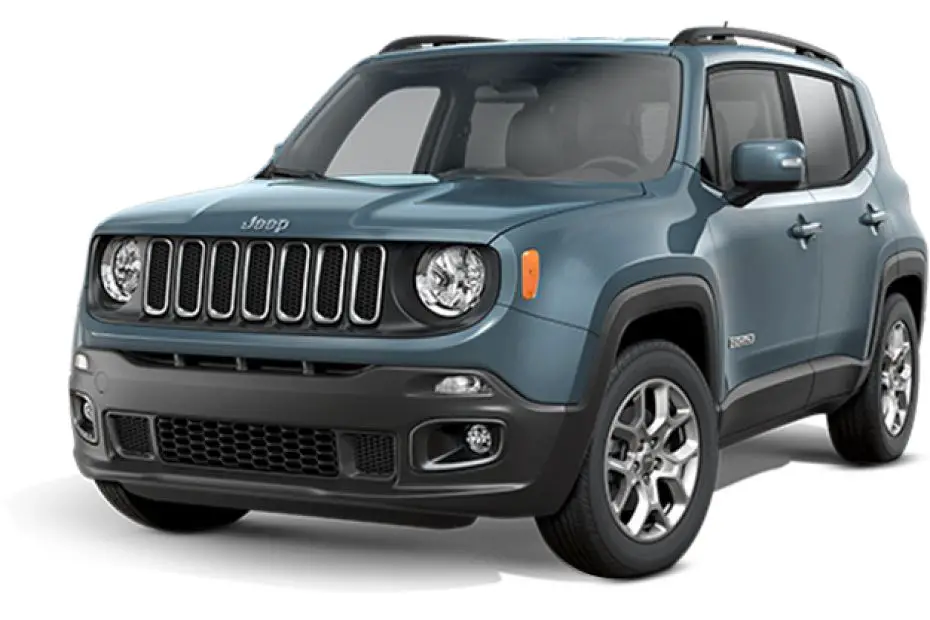If your Jeep Cherokee's check engine light is on, it may indicate a malfunction with the fuel injection system, damaged oxygen sensor, or dirty mass airflow sensor. Ignoring the warning could lead to major engine damage, so it's important to have your Jeep checked quickly to prevent costly repairs.
The check engine light on a Jeep Cherokee can be a cause for concern, and understanding its potential reasons is crucial. Issues such as a malfunctioning fuel injection system, damaged oxygen sensor, or dirty mass airflow sensor are common culprits.
While a solid yellow or orange light may indicate a lower severity, a flashing light signals a more serious problem requiring immediate attention to prevent extensive damage. It's essential to address the issue promptly to avoid costly repairs and maintain the performance of your Jeep Cherokee.

Credit: m.youtube.com
Common Causes
When the Jeep Cherokee check engine light comes on, it may be due to issues with the fuel injection system, oxygen sensor, mass airflow sensor, head gasket, emissions control part, or spark plugs. Prompt attention is crucial to prevent potential damage to the engine.
the fuel injection system, and defective spark plugs are some of the common causes of the Jeep Cherokee engine light turning on. It's important to address the issue as soon as possible to prevent further damage to your vehicle. In this section, we will discuss some of the common causes in more detail, including Loose Gas Cap, Faulty Oxygen Sensor, and Catalytic Converter Issues.
Loose Gas Cap
One of the most common causes of the Jeep Cherokee warning lights turning on is a loose gas cap. This may seem like a minor issue, but it can cause the check engine light to turn on. A loose gas cap can cause fuel to evaporate from the tank, which can result in a decrease in fuel efficiency. To fix this issue, simply tighten the gas cap until it clicks.
Faulty Oxygen Sensor
Another common cause of the Jeep Cherokee check engine light turning on is a faulty oxygen sensor. The oxygen sensor measures the amount of oxygen in the exhaust system and sends this information to the engine control module (ECM). If the oxygen sensor is faulty, it can cause the ECM to think that the engine is running too lean or too rich, which can cause the check engine light to turn on. To fix this issue, the faulty oxygen sensor will need to be replaced.
Catalytic Converter Issues
Catalytic converter issues can also cause the Jeep Cherokee engine light to turn on. The catalytic converter is responsible for converting harmful pollutants in the exhaust system into less harmful substances. If the catalytic converter is not functioning properly, it can cause the check engine light to turn on. Some common issues with the catalytic converter include a clogged converter or a damaged converter. To fix this issue, the catalytic converter may need to be cleaned or replaced.
Loose Gas Cap, Faulty Oxygen Sensor, and Catalytic Converter Issues are some of the common causes of the Jeep Cherokee engine light turning on. If the check engine light turns on, it's important to get your vehicle checked as soon as possible to prevent further damage to your Jeep Cherokee.
Credit: www.jeepforum.com
Diagnostic Process
When the check engine light in your Jeep Cherokee illuminates, it can be a cause for concern. However, the diagnostic process can help identify the issue and guide you towards the necessary repairs. The diagnostic process involves using an OBD-II scanner, interpreting error codes, and seeking professional help to address the underlying problem.
Using Obd-ii Scanner
One of the first steps in diagnosing the check engine light in your Jeep Cherokee is to use an OBD-II scanner. This device can be plugged into the vehicle's OBD-II port to retrieve error codes and diagnostic information from the vehicle's onboard computer system. By connecting the scanner and accessing the codes, you can gain insights into the specific issues triggering the warning light.
Interpreting Error Codes
Once the error codes are retrieved using the OBD-II scanner, the next step is to interpret them. Each code corresponds to a specific problem or malfunction within the vehicle's systems. By referencing the codes in the vehicle's service manual or using online resources, you can gain a better understanding of the underlying issues causing the check engine light to illuminate. This insight can help you determine the necessary repairs or maintenance needed to resolve the problem.
Seeking Professional Help
If the error codes retrieved from the OBD-II scanner are complex or require specialized knowledge to interpret, seeking professional help is advisable. A qualified mechanic or automotive technician can provide expert analysis of the error codes and diagnose the root cause of the check engine light. Their expertise and diagnostic tools can pinpoint the issue accurately, leading to effective repairs and restoration of your Jeep Cherokee's optimal performance.
Diy Solutions
If your Jeep Cherokee's check engine light is on, there are a few DIY solutions that you can try before seeking professional help. Here are some common issues that can trigger the check engine light and the DIY steps you can take to address them.
Tightening Gas Cap
If your Jeep Cherokee's check engine light is on, one of the first things to check is the gas cap. A loose or faulty gas cap can cause the check engine light to illuminate. To resolve this issue, ensure that the gas cap is securely tightened. If the gas cap is damaged or worn, consider replacing it with a new one.
Replacing Oxygen Sensor
Another common cause of the check engine light in Jeep Cherokees is a malfunctioning oxygen sensor. This sensor is responsible for monitoring the amount of unburned oxygen in the exhaust system. If it fails, it can trigger the check engine light. To resolve this issue, you may need to replace the oxygen sensor. Consult your vehicle's manual or seek professional assistance for the replacement process.
Inspecting Catalytic Converter
The catalytic converter plays a crucial role in reducing emissions from the vehicle's exhaust. A faulty or damaged catalytic converter can trigger the check engine light. To inspect the catalytic converter, visually examine it for any signs of damage or wear. If you notice any issues, such as physical damage or rattling noises, it may be necessary to replace the catalytic converter.
Preventive Measures
When it comes to your Jeep Cherokee, taking preventive measures to maintain its engine health is crucial. By following a few simple steps and staying proactive, you can ensure that the check engine light stays off, minimizing the risk of potential issues.
Regular Maintenance
Regular maintenance is key to preventing the Jeep Cherokee engine light from turning on. Scheduled oil changes, air filter replacements, and routine inspections can help identify and address any potential issues before they escalate. Additionally, ensuring that all fluid levels are at the optimal range and keeping the engine clean can contribute to the overall health of the vehicle.
Promptly Addressing Issues
Addressing any issues promptly is essential to prevent the check engine light from illuminating. Regularly checking for warning lights, strange noises, or unusual odors can help catch problems early. When an issue is identified, seek professional assistance to diagnose and resolve it promptly, preventing further damage to the engine.
When To Worry
Jeep Cherokee Check Engine Light is a common concern for many drivers. Understanding when to worry about the warning lights on your vehicle can be crucial to preventing potential issues. Here are the signs to look for:
Persistent Check Engine Light
If the Jeep Cherokee engine light remains illuminated consistently, it may indicate an ongoing issue that requires attention. Ignoring a persistent check engine light can lead to more severe problems down the road.
Flashing Check Engine Light
A flashing check engine light on your Jeep Cherokee is a more urgent warning. This indicates a severe problem that needs immediate attention. Ignoring a flashing check engine light can result in significant damage to your vehicle's engine components.
Cost Factors
Discovering the cause of a Jeep Cherokee's check engine light involves various cost factors, such as diagnosing issues like fuel injection system malfunctions, faulty oxygen sensors, or dirty mass airflow sensors. Ignoring the warning may lead to costly engine damage if not promptly addressed.
Cost Factors When your Jeep Cherokee engine light comes on, it could be due to several reasons. It is vital to address the issue as soon as possible to avoid causing more damage to your vehicle. One of the significant factors to consider when dealing with check engine light issues is the cost involved. The cost factors will help you determine whether to repair or replace certain parts of your Jeep Cherokee.
In this section, we will discuss the cost factors involved in addressing check engine light issues. Repair vs. Replacement Costs The first factor to consider is whether to repair or replace the faulty part. Repairing the part may be cheaper, but it may not be a long-term solution. On the other hand, replacing the part may be more expensive, but it could save you money in the long run.
For instance, if your oxygen sensor is failing, replacing it may cost more upfront, but it will save you money on fuel costs in the long run. Labor Costs Labor costs are another factor to consider when addressing check engine light issues. Labor costs vary depending on the complexity of the repair and the mechanic's expertise. It is essential to get a quote for labor costs before authorizing any repairs. This will help you avoid any surprises when it comes to paying for the repairs.
When dealing with Jeep Cherokee warning lights, cost factors are an essential consideration. Repair vs. replacement costs and labor costs are two critical factors to consider. It is important to get a quote for labor costs and to weigh the cost of repairing vs. replacing the faulty part. By considering these factors, you can make an informed decision about how to address your Jeep Cherokee check engine light issues.
Frequently Asked Questions
Why Is My Check Engine Light On My Jeep Cherokee?
Your Jeep Cherokee's check engine light may indicate issues like a faulty oxygen sensor, dirty mass airflow sensor, or malfunctioning fuel injection system. It's essential to address promptly to prevent costly engine damage.
Can I Drive My Jeep With The Check Engine Light On?
Yes, you can drive your Jeep with the check engine light on, but it's best to get it checked quickly to avoid potential damage to the engine.
What Is The Most Common Reason For Check Engine Light?
The most common reason for a check engine light is a failing oxygen sensor. Other reasons include fuel injection system malfunction, dirty mass airflow sensor, and defective spark plugs. Ignoring the warning could lead to expensive engine damage. A flashing light indicates a serious problem that requires immediate attention.
How Serious Is A Solid Check Engine Light?
A solid check engine light indicates a moderate issue; a flashing light suggests a serious problem needing immediate attention.
Why Is My Check Engine Light On My Jeep Cherokee?
The check engine light on your Jeep Cherokee could be on due to various reasons such as a malfunction with the fuel injection system, damaged oxygen sensor, or faulty emissions control part.
Conclusion
If your Jeep Cherokee's check engine light is on, don't ignore it. Ignoring could lead to major engine damage. Get it checked promptly to avoid costly repairs. Remember, a flashing light indicates a serious issue that needs immediate attention. Stay proactive about your vehicle's health.






